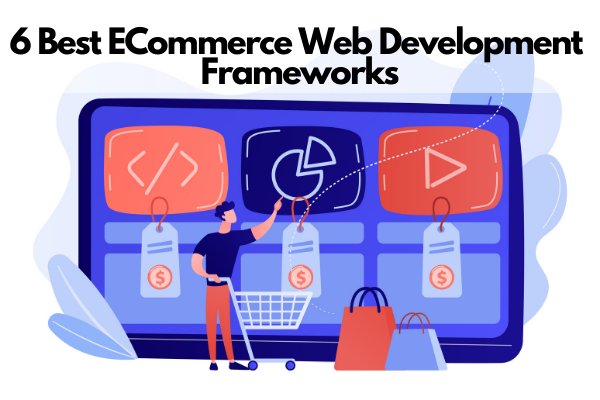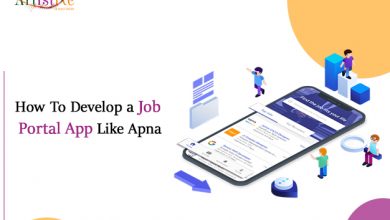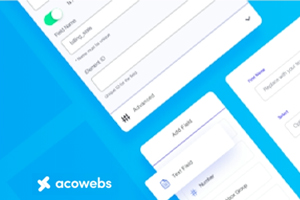6 Best ECommerce Web Development Frameworks

If your business plan includes custom eCommerce development, things can get confusing when developing your online store site. Unfortunately, there is no single solution that fits every business, which is why you must determine your business needs to choose the proper framework to enable online payments, prioritize customer experience, and ensure your customers’ information security.
What programming language or web development framework would you use to develop a custom e-commerce website that goes beyond pre-built solutions?
PHP, Python, JavaScript.
And when it comes to the framework, which framework you’re going to use for backend and frontend.?
If you’re confused, Software Assemblies being a web development company, provides you with the best frameworks for online store development – so that even the non-technical person can follow along.
Here are the tools for ecommerce website development so that you can see the difference between them:
- Ecommerce Platform
- Programming Languages
- Programming Frameworks
What is an Ecommerce Framework.?
Ecommerce frameworks are a type of software used to build your ecommerce store.
Ecommerce platforms provide users with a fully-featured digital product that allows them to build an online store in a matter of days with no coding knowledge. In addition to website design, eCommerce platforms offer inventory management, marketing, SEO, and payment system integration.
Like the majority of eCommerce websites, any big website has the server-side and the client-facing side of the website.
The frontend is the client-facing side that deals with the UI UX and consists of around 20% of the final product. Some of the frontend technologies are HTML, CSS, Javascript.
In the backend is the server-facing side; all of the rest takes place, including management of databases and accessibility and security.
Our company ecommerce developer helps you build your entire web or application rather than perform a small portion of a particular mission. According to the programming language split for servers and clients, the framework is also designed for the front or back end.
Some of the best Ecommerce web development frameworks
Frameworks for frontend
-
React JS
React JS is a JavaScript library managed by Facebook and a large community of developers. It is an open-source platform and is widely used in developing website UIs. React has released something called React Fiber, a reimplementation of ReactJS’s core algorithms. So you need to be familiar with React.js. Therefore, React.js needs to be an essential part of the e-commerce web development process. Notable features are:
- It helps developers render perfect components and provides declarative views to make web applications dynamic.
- One-way data-binding property.
- A productive event controlling system is also compatible with the W3C object model.
- JCX syntax is very similar to HTML and easy for developers to understand.
- Flow-controlled application workflow supports high performance.
- A component-based model defines the interaction of various modules and applications within a web product.
-
Vue.JS web development framework
With 7.7 million monthly downloads, Vue.js is one of the leading JavaScript frameworks for creating user interfaces. In addition, some materials and forum discussions are very popular with Chinese developers in that they are only available in Chinese.
- The Vue framework is fast to download and is great for SEO and UX.
- Very agile and straightforward, Vue is a favorite of developers because of its simplicity.
- The Vue.js documentation is concise and well organized.
- In addition, browser extensions assist you in working with different particular components.
-
Angular
It’s a JavaScript-based open-source framework and is very popular. Published by Google, it builds a single web page application via the MVC architectural pattern. It treats web pages as a frontend framework, not a fully stacked framework. Angular 4 is an impressive release and should be at the top of the e-commerce application development tools list.
Here are some fantastic features of AngularJS:
- The Model View Framework provides developers with a dynamic, rich, and easy-to-use interface.
- The’s user interface is built in HTML, making it easy to understand.
- The POJO model features well-planned objects, an Active community, and the availability of guides and tutorials.
Frameworks for Back-end
-
Node.JS
When building lightweight yet efficient websites, developers rely solely on Node.js. It works perfectly for real-time applications that process and pulse large amounts of data across several platforms and devices. You can process various applications at the same time without sacrificing performance.
Here are some of the features of Node.JS:
- Combining a non-blocking event-driven I / O model with callback functions makes the framework one of the fastest overall and trendy in the developer community.
- Written in JavaScript, this framework allows developers to code both the backend and the frontend with their help.
- Using several client services on a single server makes the technology highly scalable. In addition, real-time web development opens up room for uninterrupted change.
-
Ruby on Rails
Most importantly, Ruby on Rails framework, also known as RoR, is the preferred choice for web developers. Some of the largest and most popular websites, such as Airbnb, Hulu, and Basecamp, are developed using this framework. Ruby on Rails has been around since 2005 and is entirely free.
- It is open-source and runs on Linux. It’s a fun platform, and developers worldwide love to work on it.
- It’s also a high-speed platform, speeding up the process and allowing you to move from the planning phase to the development phase quickly.
- It is an integral part of the e-commerce web application architecture. Some of the salient features of this helpful development framework are:
-
Laravel
Now, Laravel framework is written in PHP to develop web apps and follows the MVC architectural pattern. With 102 million downloads, it’s no exaggeration to say that many developers enjoy its elegantly crafted syntax.
- Most features are easy to create as they are ready to use right out of the box.
- Template Engine: Developers can save time by using ready-made templates.
- Email integration allows email app customers to retain customers and increase sales.
In conclusion, To help you in selecting the best ecommerce website development framework. This article has given some of the best frameworks for backend and frontend. Therefore, you can now choose the best e-commerce website development platform for your business. What they are, and critical features useful for the online store owners.





